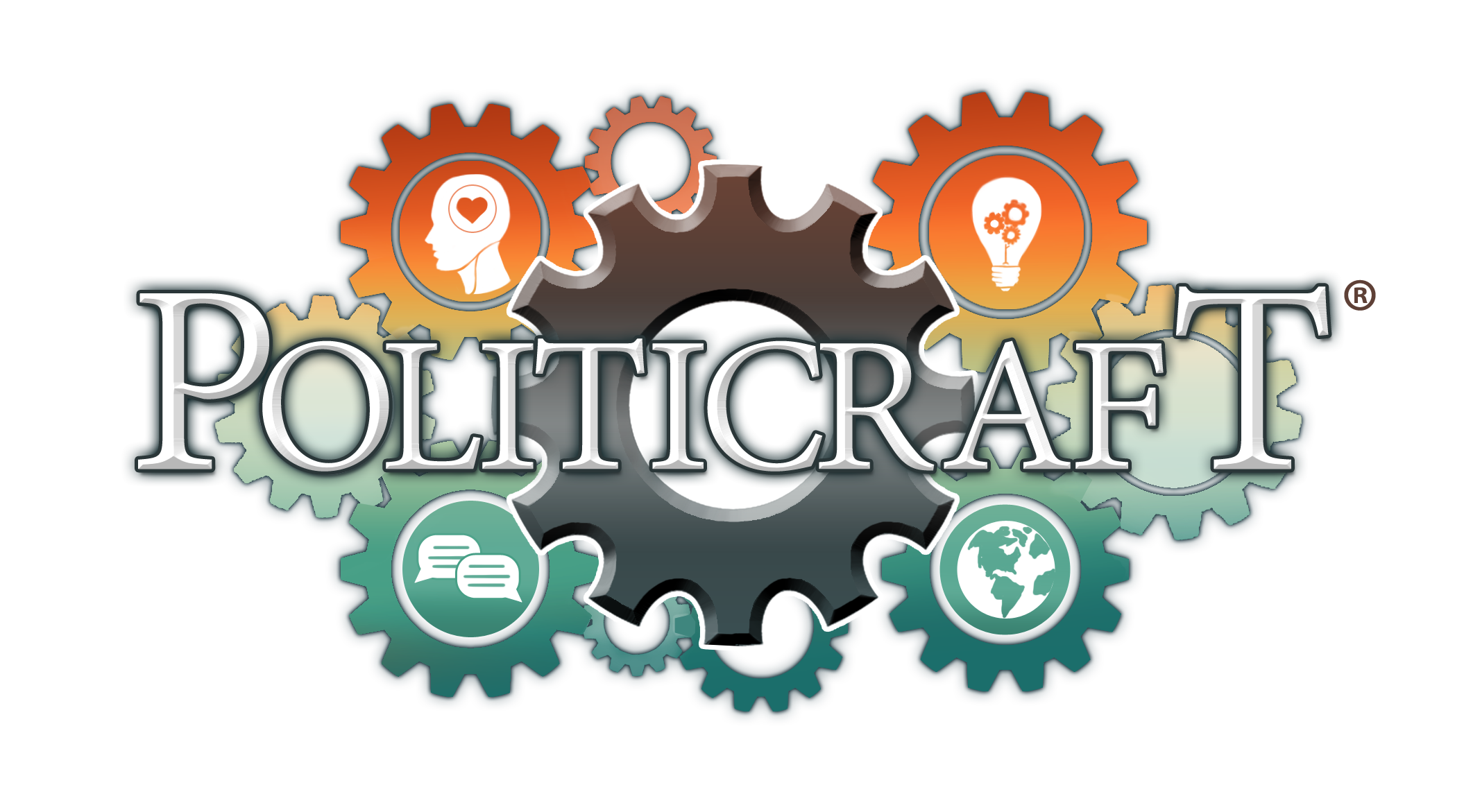Civic mindedness is not something you are born with. The knowledge, skills and dispositions of effective civic engagement must be acquired and practiced in a safe environment. That is the purpose of PolitiCraft. PolitiCraft, endorsed by the National Council for the Social Studies, embraces the best practices in civic education to prepare students for college, career and civic life.
PolitiCraft facilitates student inquiry into issues that affect their communities. The Four Dimensions of Inquiry advocated by the C3 Framework are evident in the game protocol.
Dimension 1: Developing Questions and Planning Inquiries
Students formulate and develop compelling and supporting questions through game play between diverse groups (D1.1-2); refining questions (D1.4.9-12) as multiple perspectives provide points of agreement and differences (D.1.3). Students must analyze multiple viewpoints to be successful in game play.
Sample questions may include, but are not limited to:
What is the balance between the common good and individual rights?
How am I an effective citizen in my community?
What motivates people to action?
What are the assets in my community?
What are the roles and responsibilities of government?
What is power?
How can an individual make a difference?
How can individuals and groups of citizens influence public policy?
Dimension 2: Applying Disciplinary Concepts and Tools
Using the context of their social studies discipline, students can explore compelling and supporting questions related to effective civic engagement.
In Civics, students can discuss the role and responsibilities of individuals in a democratic republic (D2. Civ2). Students can also explore the relationship between civic virtues, democratic practices (D2. Civ7) and personal interests (D2 Civ10) through appropriate deliberative methods. In the end, students can analyze how public policy can be challenged and changed (D2. Civ12), through various means (D2, Civ14) discerning possible unintended consequences (D2. Civ13)
In Economics, students can explore how incentives and choices can influence public policy (D2 Eco 1&2)
In Geography, students can examine how issues like globalization and scarcity contribute to cooperation and conflict between countries (D2 Geo11). Students may also evaluate how political and economic decisions may influence cultural and environmental characteristics of various places and regions (D2 Geo5).
In History, student can inquire how the actions of individuals and groups change over time and are shaped by historical context (D2 His3); analyzing how historical contexts shaped and continue to shape people’s perspectives (D2 His5).
Dimension Three: Evaluating Sources and Using Evidence
Students will practice literacy skills related to speaking and listening as they refine claims and counterclaims during gameplay, attending to precision, significance, and knowledge conveyed through the claim while pointing out the strengths and limitations of both. (D3.4). Extension activities before and after game play can employ reading and writing skills in which students gather relevant information from multiple sources representing a wide range of views while using the origin, authority, structure, context, and corroborative value of the sources to guide the selection of evidence to support their public policy solutions to issues that affect their community (D3.1)
Dimension Four: Communicating Conclusions and Taking Informed Action
Students will engage in dialogue with their peers to communicate understandings related to the compelling questions of the game (D4.3). Students will use reasoning and examples to illustrate their public policy claims (D4.2). Students can collaborate with their peers to take informed action on the issues discussed in PolitiCraft (D4 6-8).


